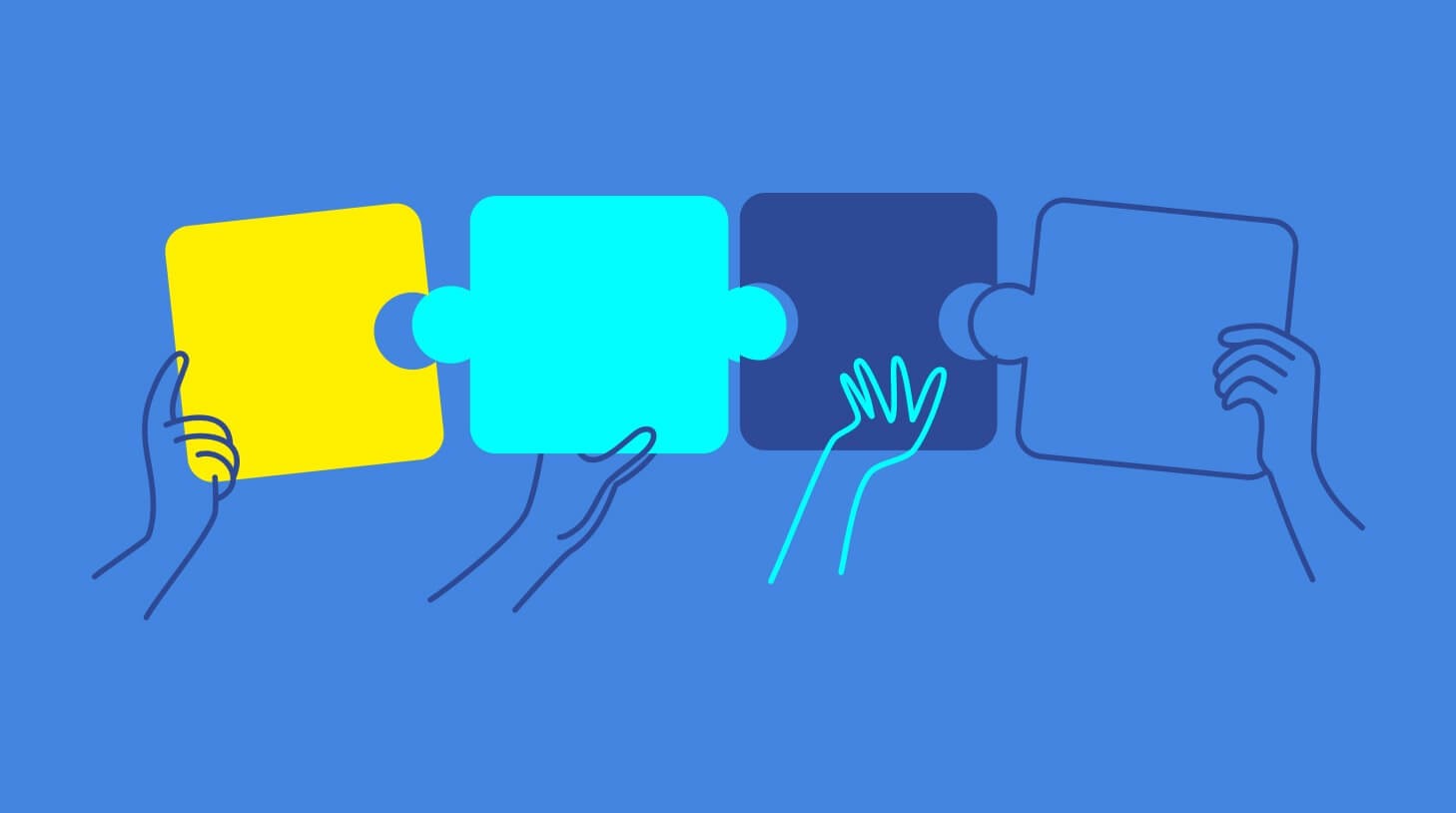Exploring 60 must-ask cultural interview questions is essential for building a diverse team. Employers frequently utilize cultural interview questions to evaluate cultural compatibility when recruiting.
The purpose of these enquiries is to evaluate the candidate's compatibility with the organization's culture and ascertain if they hold similar values and principles. This article aims to offer direction on the utilization of cultural interview questions, underscore their significance, and furnish you with instances of enquiries that you can incorporate into your recruitment procedure.
Understanding Company Culture

Understanding a company's culture is an important aspect of any job search and can significantly impact job satisfaction and performance.
Company culture refers to the shared values, beliefs, behaviors, and practices that make up the personality of an organization. A positive and inclusive culture can create a sense of belonging, promote productivity, and help employees feel engaged and motivated.
The components of company culture include:
- The Organization's Values And Mission
- Social Interactions
- Evaluation
- Celebrations And Recognition
- Interactions With The Community
- Communication
- Learning And Career Development
- Working Environment
- Heritage
It's important to assess these components when considering a job opportunity or preparing for a cultural fit interview.
Types of Cultural Interview Questions to Evaluate Candidates

During interviews, HR professionals should inquire about cultural fit. Cultural interview questions are utilized to evaluate a candidate's values, beliefs, and behaviors in relation to the organization's culture.
It is recommended that HR enquire about cultural interview questions pertaining to work style, communication, teamwork, leadership, problem-solving, and conflict resolution. A minimum of 5-7 cultural interview questions should be asked, depending on the length of the interview and the needs of the organization.
It is recommended that HR professionals seek out indications of adaptability, flexibility, and a desire to learn and develop in candidates' responses. In the current dynamic business environment, it is imperative for employees to be able to adjust to new technologies, work environments, and situations.
60 Cultural Interview Questions

Work style questions
- Can you describe a typical workday for you?
- What motivates you to work?
- How do you approach problem-solving and decision-making?
- Can you provide an example of how you have adapted to a changing work environment in the past?
- How do you manage your workload and prioritize tasks?
- How do you stay organized and manage your time effectively?
- How do you seek feedback on your performance and make improvements?
- How do you handle conflicts with colleagues or managers?
- Can you provide an example of how you have collaborated with others to achieve a common goal?
- How do you approach work-life balance and manage stress in the workplace?
Cultural questions
- How do you approach communicating with team members who have different communication styles than your own?
- Give an example of how you have handled a communication breakdown with a colleague or supervisor.
- Can you tell me about a time when you had to communicate a difficult message to a coworker or manager?
- How do you ensure that everyone is on the same page when working on a project?
- Can you describe a time when you had to present complex information to someone with limited knowledge of the subject matter?
- How do you handle misunderstandings or miscommunications in the workplace?
- Describe a time when you had to resolve a conflict with a coworker or manager through effective communication.
- How do you handle communicating with individuals whose first language is not the same as yours?
- Give an example of a situation where you had to adjust your communication style to effectively communicate with someone else.
- How do you approach giving and receiving constructive feedback in the workplace?
Teamwork questions
- How do you typically approach working with a team, and what role do you usually take on?
- Can you describe a situation where you had to work with a challenging team member, and how did you handle it?
- How do you ensure that everyone in the team is on the same page, and how do you address any misunderstandings?
- Have you ever had to work with a team from a different cultural background, and how did you adapt to working with them?
- Can you tell me about a time when you went above and beyond to support your team members?
- How do you give and receive feedback within a team, and how do you ensure that it is constructive?
- Can you provide an example of a time when you had to resolve a conflict within a team, and how did you approach the situation?
- How do you prioritize and delegate tasks within a team, and how do you ensure that everyone's workload is manageable?
- Can you describe a situation where you had to work towards a common goal with a team that had different opinions and ideas, and how did you navigate this?
- How do you ensure that everyone in the team is comfortable sharing their ideas and opinions, and how do you encourage participation from quieter team members?
Problem-Solving Questions
- In your opinion, what specific leadership qualities do you find most admirable?
- How do you motivate and inspire team members to consistently perform at their best? Can you give examples of successful implementation?
- Can you describe a difficult leadership decision you have made in the past and the process you went through to arrive at that decision?
- Within the company, what is the protocol for addressing team members who are unable to meet deadlines?
- How do you encourage collaboration and positive relationships among employees within the team and across departments?
- Please provide an example of a challenging situation you encountered while leading a team and how you successfully navigated it.
- What is your approach to giving constructive feedback to team members and colleagues in a positive manner?
- Why is effective communication essential in leadership, and how do you ensure it in your role?
- How do you stay updated on business trends and best practices and incorporate them into your leadership responsibilities?
- Can you describe a time when you had to adapt your leadership style to meet the needs of a particular situation or team dynamic?
Conflict resolution Questions
- How do you handle internal departmental conflicts? Can you describe a successful resolution?
- How does your conflict resolution philosophy match the company's values and culture?
- Can you recall a difficult conversation between two opposing parties? How did it work?
- How do you prevent workplace conflicts from growing?
- How do you reconcile employee-management conflicts?
- How does active listening resolve conflicts? How have you shown active listening during conflict resolution?
- How do you handle project disagreements? How have you handled such a situation?
- How do you resolve conflicts impartially?
- When did you mediate a team member-client conflict? How did it work?
- How do you balance the need to resolve conflicts quickly with the importance of ensuring that all parties involved feel heard and their concerns are addressed? Can you provide an example of a time when you successfully navigated this balance?
Cultural Interview Questions
- What kind of communication do you use, and how has that helped you in your career?
- How do you adjust your communication style for different project stakeholders?
- Can you give an example of a time when you and a team member or colleague had a communication breakdown? Can you please provide details on how you managed the given scenario?
- How do you employ active listening to ensure you comprehend the perspectives and needs of your team members?
- What strategies do you employ to ensure that your message is effectively communicated to all team members, irrespective of their cultural or linguistic background?
- Please provide an instance where you successfully conveyed intricate details to a team member or stakeholder who lacks technical expertise.
- When communicating with team members or stakeholders from diverse backgrounds, how do you manage cultural differences?
- Can you provide an example of how you've used written communication (email or reports) to effectively convey important information or instructions to your team?
- How do you utilise feedback to enhance your own and your team's communication skills?
- When did you have to deliver a difficult message or feedback to a teammate or stakeholder? Can you provide details on your approach and the resulting outcome?
Read more: Internal Interview Questions
Hiring for Culture Fit vs. Culture Add
When considering new hires, companies frequently prioritize individuals who can integrate well into their existing workplace culture. However, a new approach called "culture add" is becoming increasingly popular, which aims to bring in diverse perspectives and enhance the existing culture. Here are some essential distinctions between hiring for culture fit and culture add:
| Criteria | Hiring for Culture Fit | Hiring for Culture Add |
| Focus | Fit with existing culture | Diversity and new perspectives |
| Benefits | Maintains consistency and harmony within the team | Encourages creativity and innovation |
| Potential drawbacks | Can lead to homogeneity and a lack of diversity | May result in conflicting ideas and opinions |
| Interview questions | Focus on alignment with company values and working style | Emphasize individual strengths, unique perspectives, and adaptability |
| Hiring process | Often involves assessing personality and cultural fit | May prioritize skills and experiences that add to the team's diversity |
| Importance of values | High emphasis on shared values and norms | Values are important, but diverse perspectives are valued equally |
Both hiring for culture fit and culture add have their pros and cons, and the decision to use either approach depends on the company's values, goals, and priorities. It is crucial to consider the potential benefits and drawbacks of each approach and choose the one that aligns best with the company's needs.
Read more: The Company Values Examples
How to Prepare for Cultural Fit Interview Questions?

Preparing for a cultural fit interview is essential to ensuring that you present yourself in the best possible light and increase your chances of landing the job. Here are some key steps you can take to prepare for cultural fit interview questions:
- Research the company culture: Before your interview, take some time to research the company culture. Look at the company's website, social media pages, and online reviews to get an idea of what the company values and how it operates.
- Review the job description: The job description will often provide clues about the company culture and the qualities that the company is looking for in a candidate. Take note of any skills, experience, or qualities that the company highlights and think about how you can demonstrate these during your interview.
- Prepare examples: Be ready to provide examples of situations where you have demonstrated qualities that align with the company culture. For example, if the company values teamwork, be prepared to talk about times when you have worked effectively in a team environment.
- Practice answering cultural fit questions: Practice answering common cultural fit questions with a friend or family member. This will help you feel more confident and prepared during the actual interview.
- Be yourself: While it's important to present yourself in the best possible light, it's also important to be authentic and true to yourself. If you try to pretend to be someone you're not, it will likely become apparent during the interview.
- Ask questions: Don't forget that the interview is a two-way conversation. Ask questions about the company culture and how you can fit in and contribute to the team. This will demonstrate your interest and enthusiasm for the position.
Read more: Best Stay Interview Questions
FAQs
What should I say in a cultural fit interview?
In a cultural fit interview, it's important to be authentic and genuine in your responses. Speak honestly about your values, work style, and how you approach challenges. Be prepared to provide examples that demonstrate how you have aligned with company values in the past. Additionally, show interest in the company culture by asking questions about it and sharing your thoughts on how you can contribute to and thrive within it.
How do you nail a culture fit interview?
To nail a cultural fit interview, it's important to do your research on the company's values and culture beforehand. You should also be prepared to showcase your own values and how they align with the company's.
During the interview, actively listen to the interviewer's questions and respond thoughtfully, using examples from your past experiences to illustrate how you would fit into the company's culture. Additionally, demonstrate your enthusiasm and interest in the company and the role. Finally, ask thoughtful questions about the company's culture to show your genuine interest and desire to learn more.
What is an example of a cultural fit?
An example of a cultural fit could be a candidate who shares the same values, beliefs, and work ethics as the company's culture. For instance, a company that values teamwork and collaboration would look for a candidate who enjoys working in a team environment and has a history of being a good team player.
The Bottom Line
In conclusion, cultural fit interviews are an essential part of the hiring process that helps organizations to build a diverse and inclusive workplace culture. By asking the right questions, HR professionals can determine whether a candidate has the necessary skills, experience, and values to succeed within their organization. Additionally, hiring for culture add can bring fresh perspectives and ideas to the existing culture, promoting growth and innovation.
To learn more about cultural fit interviews, we invite you to read more on our Tanca blog, where we regularly publish articles on HR best practices and trends. Furthermore, if you are interested in streamlining your hiring process, consider using our HR software, which can help you to manage job postings, applications, and interviews more efficiently. Contact us today to learn more about how our software can benefit your organization.







